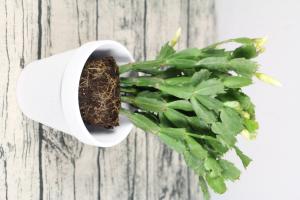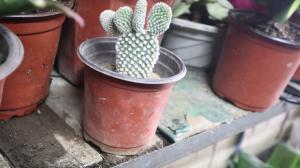How to Save a Tomato House Plant
Tomatoes are popular household plants that thrive in sunny, warm environments. However, despite your best efforts, your tomato plant might be showing signs of distress. Fortunately, many of the issues that a tomato plant faces can be addressed with some basic care and attention. Here are some tips on how to save a tomato house plant:
Identify the Problem
The first step in saving a tomato house plant is to identify the issue. Yellowing leaves, wilting stems, and stunted growth can all be symptoms of a number of problems, such as overwatering, underwatering, nutrient deficiency, or pests. Carefully examine your plant and perform a soil test to determine what is causing the issues.
Adjust Watering Habits
Proper watering habits are crucial for tomato plants. Overwatering can cause the roots to rot, while underwatering can cause the plant to wilt and die. Generally, tomato plants require consistent, even moisture. Check the soil regularly and ensure that it is neither too dry nor too soggy. Water when the top inch of soil feels dry to the touch, and avoid getting the foliage wet to prevent fungal growth.
Fertilize Appropriately
Tomato plants require a balance of nutrients to grow and thrive. Fertilizing your plant properly can help correct nutrient deficiencies and improve overall health. Use a balanced fertilizer with equal amounts of nitrogen, phosphorus, and potassium. Apply the fertilizer according to package instructions, and avoid over-fertilizing, which can burn the plant's roots and foliage.
Control Pests
Pests such as aphids, spider mites, and whiteflies can wreak havoc on your tomato plant. Monitor your plant regularly for signs of infestation, such as yellowing leaves or a sticky residue on the foliage. If you suspect a pest problem, treat the plant with an insecticidal soap or neem oil to control the infestation.
Provide Adequate Light and Airflow
Tomato plants require ample light and airflow to grow healthy and strong. Place your plant in a sunny location where it can receive at least six hours of direct sunlight each day. Additionally, ensure that your plant has adequate space around it to promote good airflow and prevent the development of fungal diseases.
Conclusion
Saving a tomato house plant requires patience, attention, and proper care. By identifying the problem, adjusting watering habits, fertilizing appropriately, controlling pests, and providing adequate light and airflow, you can help your plant recover and thrive. With some TLC, your tomato plant can be a fruitful addition to your household once again!

 how many times do yo...
how many times do yo... how many planted tre...
how many planted tre... how many pine trees ...
how many pine trees ... how many pecan trees...
how many pecan trees... how many plants comp...
how many plants comp... how many plants can ...
how many plants can ... how many plants and ...
how many plants and ... how many pepper plan...
how many pepper plan...






























